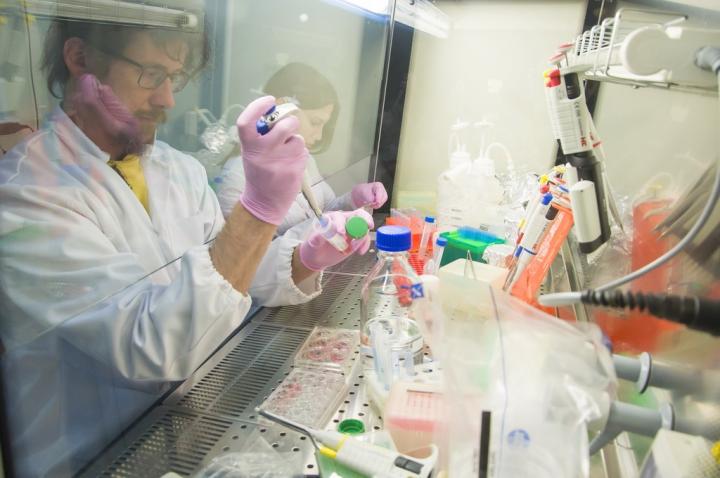
Credit: FEFU press office
Scientists of Far Eastern Federal University (FEFU University) get started studying the formation and survival mechanisms of the brain malignant tumors cells, i.e. glioma, to reveal new ways for diagnosis and therapy for this fatal disease. This research was supported by the grant from Russian Science Foundation (RSF).
Scientists of the School of Biomedicine (FEFU University) plan to reveal new markers to improve the efficacy of diagnosis of glioma, most common type of brain cancer. Understanding molecular mechanisms behind the tumor growth promises to point to new targets for the personalized therapy in the near future.
Researchers will design genetically modified models of brain tumors (gliomas), with and without most typical according to medical practice primary mutations of the IDH1 and TP53 genes. Scientists are also interested in the role of these mutations in the subsequent molecular changes and in the overall tumor development.
This research project uses glioma cells isolated from real patients. Scientists plan correcting IDH1 and TP53 genes mutated in tumors back into “wild”, unaltered genes, as well as introducing mutations into the these normal genes to mimic the tumor situation.
“Our ultimate goal is to identify new potential drug targets in tumor genes mutated and to establish new markers for more precise diagnostics. To do this, we will create laboratory models of the most frequent mutations in gliomas occurring in real life. Using such models, we hope not only to understand roles of mutations in the IDH1 and TP53 genes in tumor development but also to effectively test new antitumor compounds that can suppress the mechanisms of tumor cell survival triggered by mutations. If the study succeeds that willbe a huge step towards personalized therapy of gliomas based on the patient’s individual mutation profile”, said Alexander Kagansky, head of the grant research, who is leading the Center for Genomic and Regenerative Medicine at FEFU School of Biomedicine.
The study supported by Russian Science Foundation (RSF) will be carried out within 3 years in the frame of the priority area of the Strategy for Scientific and Technological Development of the Russian Federation, i.e. personalized medicine and high-tech healthcare. The project will be done in collaboration with Moscow Institute of Physics and Technology.
###
Media Contact
Alexander Zverev
[email protected]




